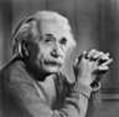“Everything has changed save our modes of thinking, and we thus drift towards unparalleled catastrophes.” – Albert Einstein
Twenty years ago at the Graduate School of Business at Stanford, I recall Professor Michael Ray and I talking about the word “paradigm” and how we had to come up with a less-academic word for the kind of shift we were trying to encourage. Our common opinion was it would never catch on in the business world. Boy, were we wrong! Unfortunately, the word paradigm is not only widely used nowadays but it is frequently overused, misused, and often confused with mere change.
What we were envisioning and what Ray was introducing to his MBA students was a shift in people’s worldviews, what futurist and social scientist Willis Harman called “global mind change.” I have since written about this contextual shift in thinking and personally experienced some resistance amongst business people to give much thought to context. Often seen as abstract or philosophical such explorations are often dismissed by people as “soft.” Despite this reluctance to engage the “soft stuff,” more and more people are realizing the connection between this seemingly softer aspect of work and what gives people meaning for what they do.
People are beginning to see the connection between the widespread shortage of real meaning in their work and the widespread refusal to engage lasting transformations in our organizations. We lose one because we refuse to engage the other! As long as we settle for incremental change in the content of our lives while holding onto outdated assumptions, beliefs and attitudes (the context) that underlie our consciousness, we will be gradually shifting to what Einstein described as “unparalleled catastrophes.” In other words, this financial crisis is kid stuff. The system will keep breaking down crises by crises and, unless we shift our “modes of thinking” we will discover what true calamity is.
When a worldview shifts – when someone reframes the context from which they think – shifts also occur in the outmoded underlying assumptions, beliefs, focuses, values and attitudes since they no longer fit with the transformed worldview. Some of the content remains useful, but not all. For instance, when the worldview about personal computers was gaining momentum, many ideas about giant mainframes had to be dropped and many others adjusted and adapted for use in the PC world.
More in the present, in these days of post-2008 recession turbulence I’m hearing many people focusing more on people and the planet and much less of consumption and technology or money and machines. People and the environment they rely upon for life have been subjugated in recent years with the increased focus on technology and making money. Of course this one facet shift in focus does not describe the entire new paradigm, just one piece of it. Many other elements will shift along with it, such as the emotional aspect from fear to trust, attitudes shifting from separation to interconnectedness, from individualism to the collective or community.
The idea that people can make a shift in how they think has never been as ripe as it is right now. Most big change happens after something bad happens. That’s the way we seem to behave – to wait for disaster and then act. Well, we just had another disaster – a global meltdown of markets and economies – and perhaps those of us advocating a global shift in consciousness will gain some additional colleagues as more people jump on the bandwagon of transformation. If you know anyone who is on the brink of making this shift, I encourage you to nudge him, her or them by offering articles to read, videos to watch, books to buy. So keep your eyes open for subtle signs of questioning, or wondering about what it all means, and join me in nudging anyone who seems like they need a bit of encouragement in examining their values and worldviews.
If these ideas resonate with you and you feel comfortable engaging these subjects, please realize that the vast majority of people never engage these ideas and could use a little help thinking about why our financial system imploded, why so many human systems are getting so dysfunctional, what makes systems work the way they do, and what alternatives may exist for the way things are. It would be a service to inform them that the existing worldview doesn’t need to remain unchanged, that paradigm change is possible. Reach out to anyone you know who may be uniformed about reframing their worldview. It will be a service to them and to all of us.
There’s no better time than now. There’s no better person than you.
